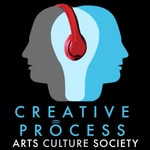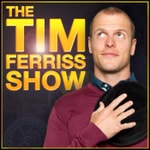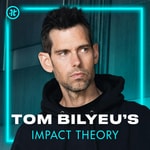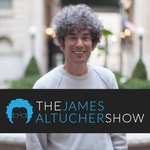Robinson's Podcast – Détails, épisodes et analyse
Détails du podcast
Informations techniques et générales issues du flux RSS du podcast.

Robinson's Podcast
Robinson Erhardt
Fréquence : 1 épisode/4j. Total Éps: 257

Classements récents
Dernières positions dans les classements Apple Podcasts et Spotify.
Apple Podcasts
🇨🇦 Canada - naturalSciences
29/07/2025#23🇬🇧 Grande Bretagne - naturalSciences
29/07/2025#22🇩🇪 Allemagne - naturalSciences
29/07/2025#32🇺🇸 États-Unis - naturalSciences
29/07/2025#20🇫🇷 France - naturalSciences
29/07/2025#24🇨🇦 Canada - naturalSciences
28/07/2025#15🇬🇧 Grande Bretagne - naturalSciences
28/07/2025#29🇩🇪 Allemagne - naturalSciences
28/07/2025#24🇺🇸 États-Unis - naturalSciences
28/07/2025#22🇫🇷 France - naturalSciences
28/07/2025#21
Spotify
🇬🇧 Grande Bretagne - science
29/07/2025#42↗🇺🇸 États-Unis - science
29/07/2025#42→🇬🇧 Grande Bretagne - science
28/07/2025#46↗🇺🇸 États-Unis - science
28/07/2025#42→🇬🇧 Grande Bretagne - science
27/07/2025#48→🇺🇸 États-Unis - science
27/07/2025#42↘🇬🇧 Grande Bretagne - science
26/07/2025#48↗🇺🇸 États-Unis - science
26/07/2025#41↗🇺🇸 États-Unis - science
25/07/2025#46↗🇺🇸 États-Unis - science
17/07/2025#50↘
Liens partagés entre épisodes et podcasts
Liens présents dans les descriptions d'épisodes et autres podcasts les utilisant également.
See all- http://robinsonerhardt.com
358 partages
- https://nickbostrom.com
68 partages
Qualité et score du flux RSS
Évaluation technique de la qualité et de la structure du flux RSS.
See allScore global : 58%
Historique des publications
Répartition mensuelle des publications d'épisodes au fil des années.
222 - Richard Wolff: Israel, Ukraine, China, and the End of the American Empire
Épisode 222
dimanche 25 août 2024 • Durée 03:03:44
Patreon: https://bit.ly/3v8OhY7
Richard Wolff is Professor Emeritus of Economics at the University of Massachusetts Amherst and a visiting professor at The New School, where he works on economics in the Marxist tradition. This is Richard’s fourth appearance on Robinson’s Podcast. In episode #127, he and Robinson discussed some of the most profound criticisms of capitalism; in #154, they focused on the myths surrounding Marxism and Marx himself; and in #190 they covered the Israel-Palestine conflict from a Marxist perspective. In this wide-ranging episode, Richard and Robinson talk about the end of the American empire. More particularly they discuss the wars in Russia, Ukraine, Israel, and Palestine, the rivalry between China and the United States, the global interplay between capitalism and socialism, the distinction between socialism and communism, the conflict between the BRICS and G7 nations, and more. Richard’s latest book is Understanding Capitalism (Democracy at Work, 2024).
Understanding Capitalism (Book): https://www.democracyatwork.info/understanding_capitalism
Class Theory and History (Book): https://a.co/d/ht4trZN
Understanding the 2024 Elections (Article): https://asiatimes.com/2024/08/capitalism-mass-anger-and-2024-elections/
Richard’s Website: https://www.rdwolff.com
Economic Update: https://www.democracyatwork.info/economicupdate
OUTLINE
03:10 On the Trauma of His Family Background
10:50 Academia’s War on Marxism
22:45 Economics as the Secret Undercurrent of History
28:01 Will Ukraine Defeat Russia?
31:52 Is China the Empire of the New World?
39:04 The Best American Strategy Against China
45:24 How Trump Won and Lost America
56:22 Is Israel a Colonialist State?
01:03:23 On the Expulsion of the Palestinians from Israel
01:10:49 Israel as America’s Economic Baby
01:18:08 Global Capitalism as the Enemy of the Islamic World
01:23:00 Why You Should Distrust Wartime Propaganda
01:33:03 Zelensky and the Ukrainian Chess Match
01:42:53 The Economic Conspiracy Behind the American Pick-Up Truck
01:49:31 Israel, Ukraine, and the New Cold War
01:54:20 The Many Taboos of Socialism and Communism
01:58:54 The War Between Socialism and Capitalism
02:07:51 Is Socialism More Efficient than Capitalism?
02:16:58 World War I and the Rise of Socialism
02:22:58 The Failed American Attempt to Destroy Russian Communism
02:27:26 Why Did Russia Choose Communism over Socialism?
02:38:06 Communism, Socialism, and the War for the Workplace
02:43:00 Is China Secretly Capitalist?
02:53:18 America’s Choice Between Equality or Subservience to China
02:58:45 Europe’s Hidden Economic Apocalypse
Robinson’s Website: http://robinsonerhardt.com
Robinson Erhardt researches symbolic logic and the foundations of mathematics at Stanford University. Join him in conversations with philosophers, scientists, historians, economists, and everyone in-between.
221 - David Albert: The Measurement Problem of Quantum Mechanics
Épisode 221
dimanche 18 août 2024 • Durée 02:03:13
Patreon: https://bit.ly/3v8OhY7
David Albert is the Frederick E. Woodbridge Professor of Philosophy at Columbia University, director of the Philosophical Foundations of Physics program at Columbia, and a faculty member of the John Bell Institute for the Foundations of Physics. This is David’s eighth appearance on Robinson’s Podcast. He last appeared on episode 210 with Tim Maudlin, which was a more advanced episode on Niels Bohr and the foundations of quantum mechanics. In this episode, David gives a pedagogical and introductory overview of the measurement problem, which is the issue at the core of many discussions about the foundations of quantum mechanics. David’s most recent book is A Guess at the Riddle (2023). If you’re interested in the foundations of physics, then please check out the JBI, which is devoted to providing a home for research and education in this important area. Any donations are immensely helpful at this early stage in the institute’s life.
Note: Unfortunately, the cameras turned off in the middle of the episode. For twenty minutes there is no video, and for most of the episode only the camera focusing on David is recording.
A Guess at the Riddle: https://a.co/d/6qcsidl
The John Bell Institute: https://www.johnbellinstitute.org
OUTLINE
00:00 Introduction
04:54 On Philosophy and the Foundations of Physics
15:35 The Bizarreness of the Quantum World
19:16 What Is the World of Classical Physics?
24:00 How Quantum Mechanics Destroyed the Classical World
29:19 What Is Quantum Mechanical Superposition?
32:18 How Quantum Mechanics Became the Theory of Reality
39:53 What Is the Measurement Problem of Quantum Mechanics?
51:05 Niels Bohr and the Foundations of Quantum Mechanics
01:01:14 Niels Bohr and the EPR Paper
01:08:45 Was Niels Bohr the Most Charming Physicist of All Time?
01:15:59 Is the Measurement Problem a Scientific Problem?
01:21:24 Is String Theory Pseudoscience?
01:31:03 Why Don’t Many Philosophers Work on String Theory?
01:34:08 The Wave Function and the Measurement Problem
01:37:57 Quantum Measurement and Wave Function Collapse
01:41:34 Hidden Variable Theories of Quantum Mechanics
01:44:54 Quantum Mechanics and the Multiverse
01:48:47 Solving the Measurement Problem with Experiment
01:56:41 Quantum Mechanics and the Scientific Project
Robinson’s Website: http://robinsonerhardt.com
Robinson Erhardt researches symbolic logic and the foundations of mathematics at Stanford University. Join him in conversations with philosophers, scientists, historians, economists, and everyone in-between.
214 - Joyce Carol Oates: On Philosophy and Literature
Épisode 214
dimanche 30 juin 2024 • Durée 01:00:59
Patreon: https://bit.ly/3v8OhY7
Joyce Carol Oates is the Rogers S. Berlind ’52 Professor Emerita in the Humanities at Princeton University with the Program in Creative Writing. She is among the most widely-recognized and respected writers of our time, and has written in a wide variety of media and genres, from poetry and fiction in the former category to horror and Gothic in the latter. Her work has also been adapted into various other media, from plays to film. Joyce is the recipient of two O. Henry Awards and the National Book Award, among many others. This is Joyce’s second appearance on Robinson’s Podcast. In episode 137, she and Robinson discussed craft in fiction and poetry. In this episode, they talk about Joyce’s most recent collection of short stories, Zero-Sum (link in the description), as well as philosophy, Peter Singer, dealing with criticism, translation, and more.
Joyce’s Twitter: https://twitter.com/JoyceCarolOates
Joyce’s Substack: https://joycecaroloates.substack.com
Zero-Sum: https://a.co/d/0cYh3ndo
OUTLINE
00:00 Introduction
03:16 On Peter Singer
12:41 On Buddhism
21:50 On Hemingway
25:50 Dealing with Criticism
38:17 On Translation
47:53 Writing Short Stories
58:38 Imagery and Recreating the World
Robinson’s Website: http://robinsonerhardt.com
Robinson Erhardt researches symbolic logic and the foundations of mathematics at Stanford University. Join him in conversations with philosophers, scientists, and everyone in-between.
124 - Jay McClelland: Deep Learning, Neural Networks, and Artificial Intelligence
Épisode 124
dimanche 6 août 2023 • Durée 01:47:44
Jay McClelland is Lucie Stern Professor in the Department of Psychology at Stanford University, where he is also Director of the Center for Mind, Brain, Computation and Technology. Along with other towering figures like Geoffrey Hinton, Jay is considered one of the fathers of artificial intelligence. In this episode, Robinson and Jay discuss some of his main interests in and contributions to the field, including his work on parallel distributed processing with David Rumelhart, the relationship between neural networks and the brain, and just what developments are necessary for artificial intelligence to replicate the thinking of the greatest human scientists and engineers.
Parallel Distributed Processing: https://a.co/d/aELzYx2
OUTLINE
00:00 In This Episode…
00:30 Introduction
02:55 Jay’s Beginnings in Psychology
07:46 What Is Parallel Distributed Processing?
24:21 Cognitive Phenomena and Neural Networks
37:27 Fodor and Pylyshyn on Neural Networks
52:10 Affective Reasoning
55:52 Advancing AI to Compete with Scientists
01:10:02 What Distinguishes AI From Our Greatest Thinkers?
01:14:15 AI and Mathematical Cognition
01:18:47 Macrostructure and Microstructure
01:43:32 Final Thoughts
Robinson’s Website: http://robinsonerhardt.com
Robinson Erhardt researches symbolic logic and the foundations of mathematics at Stanford University. Join him in conversations with philosophers, scientists, weightlifters, artists, and everyone in-between.
123 - Paul Boghossian: The Sokal Hoax, The A Priori, and Moral Facts
Épisode 123
vendredi 4 août 2023 • Durée 01:19:00
Paul Boghossian is Silver Professor of Philosophy at New York University, where he is also Chair of the Philosophy Department. Paul has worked in a wide variety of areas within philosophy, including epistemology and the philosophy of language, mind, and logic respectively. Robinson and Paul discuss the sociological relationship between physics and philosophy, the Sokal Hoax, philosophy in public life, the role of the a priori and a posteriori distinction in metaphysics, logic, and epistemology, and the nature of moral facts. For more detail on the latter, check out Paul’s book with Timothy Williamson, Debating The A Priori (Oxford, 2020).
Debating The A Priori: https://a.co/d/diNADPx
OUTLINE
00:00 In This Episode…
00:32 Introduction
04:33 Physics and Philosophy
17:12 The Sokal Hoax
26:52 Distinguishing the A Priori and A Posteriori
31:59 Does The A Priori/A Posteriori Distinction Hold Water?
48:07 Clarifying the Distinction
53:51 Debating the A Priori with Timothy Williamson
01:03:11 Are There Moral Facts?
Robinson’s Website: http://robinsonerhardt.com
Robinson Erhardt researches symbolic logic and the foundations of mathematics at Stanford University. Join him in conversations with philosophers, scientists, weightlifters, artists, and everyone in-between.
122 - David Pizarro: Moral Psychology, Praise & Blame, Disgust & Politics
Épisode 122
mercredi 2 août 2023 • Durée 01:49:17
David Pizarro is Professor of Psychology at Cornell University. While he teaches and publicly discusses a wide variety of material in the discipline, his primary research interest is in moral judgment. In this episode, Robinson and David discuss some of the conceptual underpinnings of moral psychology before turning to the research on praise, blame, social cognition, and the relationship between disgust and political affiliation. David is also the co-host of two podcasts, Very Bad Wizards with Tamler Sommers and Psych with Paul Bloom.
David’s Website: http://peezer.net
David’s Twitter: https://twitter.com/peez
Very Bad Wizards: https://verybadwizards.fireside.fm
Psych: https://psych.fireside.fm
OUTLINE
00:00 In This Episode…
00:39 Introduction
02:52 David’s Interest in Moral Psychology
06:42 Morality, Judgment, and Intuition in Psychology
30:40 Did Psychology Advance Too Fast
33:44 The Psychology of Praise and Blame
56:26 Why Do We Blame Objects and Robots?
01:10:09 Ostracism, Loneliness, and the Human Condition
01:14:27 The Psychology of Disgust
01:32:26 Disgust and Moral Judgement
01:40:10 Disgust Sensitivity and Political Affiliation
Robinson’s Website: http://robinsonerhardt.com
Robinson Erhardt researches symbolic logic and the foundations of mathematics at Stanford University. Join him in conversations with philosophers, scientists, weightlifters, artists, and everyone in-between.
121 - Julian Barbour: Thermodynamics, Boltzmann Brains, and a New Theory of Time
Épisode 121
dimanche 30 juillet 2023 • Durée 01:57:01
Julian Barbour is a physicist working in the foundations of physics and quantum gravity, with a special interest in time and the history of science. In this episode, Julian and Robinson discuss thermodynamics and the arrows of time, including a new theory of time developed by Julian and his collaborators, which is laid out in his book, The Janus Point: A New Theory of Time. If you’re interested in the foundations of physics—which you absolutely should be—then please check out the John Bell Institute (Julian is an Honorary Fellow at the JBI), which is devoted to providing a home for research and education in this important area. At this early stage any donations are immensely helpful.
Julian’s Website: http://platonia.com/index.html
The Janus Point: https://a.co/d/4NVOGqq
A History of Thermodynamics: http://platonia.com/A_History_of_Thermodynamics.pdf
Quantum without Quantum: https://arxiv.org/abs/2305.13335
The John Bell Institute: https://www.johnbellinstitute.org
OUTLINE
00:00 In This Episode…
00:56 Introduction
04:42 Julian’s Interest in Time
07:27 Time’s Arrows
23:34 The Problem of Time-Reversal Symmetry
25:54 A Potted Overview of Entropy and Thermodynamics
38:21 Entropy and Time’s Arrow
52:32 The Janus Point and a New Theory of Time
01:07:00 Intuition and The Janus Point
01:21:21 Entropy and Entaxy
01:26:00 Cosmic Inflation and Its Problems
01:44:05 Quantum Mechanics without the Wave Function
Robinson’s Website: http://robinsonerhardt.com
Robinson Erhardt researches symbolic logic and the foundations of mathematics at Stanford University. Join him in conversations with philosophers, scientists, weightlifters, artists, and everyone in-between.
120 - Simon Blackburn: Vanity, Narcissism, Lust, and Pride
Épisode 120
vendredi 28 juillet 2023 • Durée 01:03:05
Simon Blackburn was Professor of Philosophy at the University of Cambridge and Edna J. Koury Distinguished Professor of Philosophy at the University of North Carolina, Chapel Hill. This is Simon’s second appearance on the show. In episode 68, Simon and Robinson discussed metaethics and moral realism. In this episode, they talk about his latest books, Lust and Mirror, Mirror, with special attention to toxic vanity, the tale of Narcissus, and pride.
Lust: https://a.co/d/9dcOem9
Mirror, Mirror: https://a.co/d/9uy81GY
OUTLINE
00:00 In This Episode…
00:38 Introduction
03:08 Love and Simon’s Philosophy
10:04 L’Oreal and Toxic Vanity
31:09 The Tale of Narcissus
42:41 Lust and Self-Love
46:45 Psychology and Narcissism
52:43 Pride
Robinson’s Website: http://robinsonerhardt.com
Robinson Erhardt researches symbolic logic and the foundations of mathematics at Stanford University. Join him in conversations with philosophers, scientists, weightlifters, artists, and everyone in-between.
119 - Mark Solms: Neuropsychoanalysis and the Source of Consciousness
Épisode 119
mercredi 26 juillet 2023 • Durée 01:32:13
Mark Solms is professor of Neuropsychology at the Neuroscience Institute at the University of Cape Town. He is also a psychoanalyst, and while Mark’s early research focused on the brain mechanisms of sleep and dreaming, he is currently working on the neural correlates of consciousness and affect. In this episode, Robinson and Mark talk about his new book The Hidden Spring: A Journey to the Source of Consciousness. More particularly, they discuss the hard problem of consciousness and how recent advances in neuroscience have pointed toward a solution.
The Hidden Spring: https://a.co/d/jcvbmLw
Mark’s Twitter: https://twitter.com/Mark_Solms
OUTLINE
00:00 In This Episode…
00:47 Introduction
03:09 What is Neuropsychoanalysis?
11:54 Was Freud a Neuroscientist?
26:17 What is the Hard Problem of Consciousness?
36:24 What is the Relationship between Dreaming and Consciousness?
54:44 Patients without a Cortex
01:03:01 Does Consciousness Have a Purpose?
01:14:53 Daniel Dennett and Karl Friston
01:24:49 Solving the Hard Problem of Consciousness
Robinson’s Website: http://robinsonerhardt.com
Robinson Erhardt researches symbolic logic and the foundations of mathematics at Stanford University. Join him in conversations with philosophers, scientists, weightlifters, artists, and everyone in-between.
118 - Slavoj Žižek & Sean Carroll: Quantum Physics, the Multiverse, and Time Travel
Épisode 118
dimanche 23 juillet 2023 • Durée 01:48:38
Slavoj Žižek is international director of the Birkbeck Institute for the Humanities at the University of London, visiting professor at New York University, and a senior researcher at the University of Ljubljana’s Department of Philosophy. He was also the guest for Robinson’s Podcast #109 on psychoanalysis, wokeness, racism, and a hundred other topics. Sean Carroll is Homewood Professor of Natural Philosophy at Johns Hopkins University and fractal faculty at the Santa Fe Institute. He is also host of Sean Carroll’s Mindscape, a terrific show (that influenced the birth of Robinson’s Podcast) about science, society, philosophy, culture, arts, and ideas. Sean was one of the guests—along with David Albert of Columbia—on Robinson’s Podcast #106, which covers the Many-Worlds theory of quantum mechanics, entropy and Boltzmann Brains, and the fine-tuned universe. In this episode, Robinson, Sean, and Slavoj (though mostly Sean and Slavoj) talk about quantum mechanics, the indeterminacy of small-scale reality, cosmology and the big bang, major figures like Niels Bohr, Einstein, and Stephen Hawking, and the world of sci-fi, including movies like Everything Everywhere All at Once, Indian Jones, and the Avengers. If you’re interested in the foundations of physics—which you absolutely should be—then please check out the John Bell Institute (Sean is an Honorary Fellow at the JBI), which is devoted to providing a home for research and education in this important area. At this early stage any donations are immensely helpful.
Robinson's Podcast #109 | Slavoj Žižek: Wokeness, Psychoanalysis, and Quantum Mechanics: https://youtu.be/IxmZ4AVac7U
Robinson’s Podcast #106 | David Albert & Sean Carroll: Quantum Theory, Boltzmann Brains, & The Fine-Tuned Universe: https://youtu.be/U6ZtmGIhIhU
Sean’s Website: https://www.preposterousuniverse.com
Sean’s Twitter: https://twitter.com/seanmcarroll
The Biggest Ideas in the Universe: https://a.co/d/dPKZ40X
The John Bell Institute: https://www.johnbellinstitute.org
OUTLINE
00:00 In This Episode…
00:38 Introduction
04:40 Quantum Incompleteness
15:56 A Problem with Many-Worlds?
27:08 Niels Bohr and the Copenhagen Interpretation
40:30 Ontological Indeterminacy and Quantum Physics
47:23 On Superposition, History, and Art
01:02:10 What’s The Status of the Big Bang?
01:09:57 Albert Einstein, Niels Bohr, and Indeterminacy
01:21:13 Will Quantum Mechanics Be in a Theory of Everything?
01:27:55 Everything Everywhere All at Once, Indiana Jones, and The Avengers
01:33:03 Time Travel and Killing Hitler
01:41:54 On Stephen Hawking
Robinson’s Website: http://robinsonerhardt.com
Robinson Erhardt researches symbolic logic and the foundations of mathematics at Stanford University. Join him in conversations with philosophers, scientists, weightlifters, artists, and everyone in-between.









